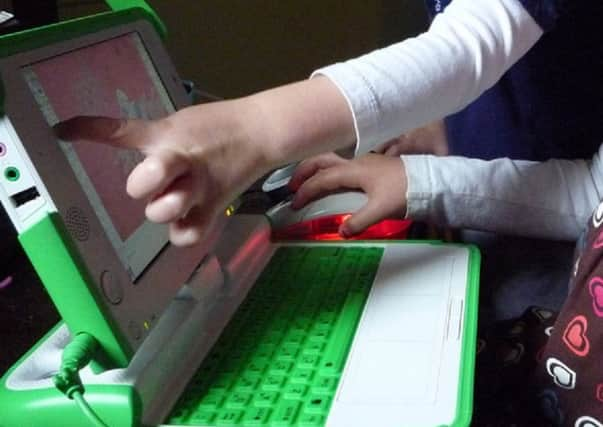Does new tech harm our relationship with children?


It’s a common sight at dinner tables and in living rooms across the nation - a face hidden behind the screen of a tablet or smartphone.
With parents, carers and children all exposed to mobile technologies, is it right to be concerned about the potential for quality family interaction to degrade or disappear completely?
Advertisement
Hide AdChildnet International is one of the world’s foremost authorities on internet safety for children, with advice for parents and carers to help create rewarding digital relationships. Will Gardner is the CEO of Childnet International and along with the Childnet team has helped to develop internet safety protocols and popularise Safer Internet Day.


Mr Gardner said: “Access to technology is now made available at a much earlier age. Portability is now much greater and supervision more difficult - tablets can be used wherever the child might be and tools can be enabled on these by parents to restrict access. All four of the UK’s big Internet Service Providers provide free parental controls with their internet plans.
“We have a family agreement on our site where we endeavour for parents, carers and children to discuss tech use in the house and lay down some rules and agreement about them, such as no smartphones at the dinner table. These are challenging for both children and adults to follow, so parents and carers must model good behaviour.”
The family agreement aims to encourage responsible internet use as well as promoting a healthy balance between online and offline life. However, Will acknowledges that sustained internet use may not be a worrying activity in certain situations.
“Of course, if a child is really engaged with a project such as coding, you can understand that a longer length of time may be necessary. A lot of homework means that children are now engaged with sitting in front of a screen now, too. There’s a high expectation with children that tech is universal and everywhere, as it’s enabled access to the internet at a much younger age.
“There’s no rights or wrongs in this area; people just have to find what works for them as a family.”
Advertisement
Hide AdA recent study by fellow children’s research organisation Childwise suggests that parents control access to digital devices in a carrot-and-stick fashion, sparking concerns that mobile technologies may be having a detrimental effect on family relationships.
The 21st annual report shows that children are using smartphones, laptops, tablets and video games alongside the television as methods of playing, learning and socialising. Parents are also more likely to deny access to these devices as the modern-day equivalent of grounding a child.
Advertisement
Hide AdThe Childwise sample of 2,000 children aged between 5 and 16 showed that tablets were fast becoming the preferred device of many children, with one in three of five to seven year-olds having their own.
A research paper published in 2013 by staff from the University of Glasgow indicated that for children of 5, their exposure to three hours of TV a day or more was more likely to give them conduct problems by age 7.
Electronic games, such as the ones found on tablets and video game consoles, were not found to show any detrimental affects on relationships such as emotional problems or inability to interact correctly with their parents.